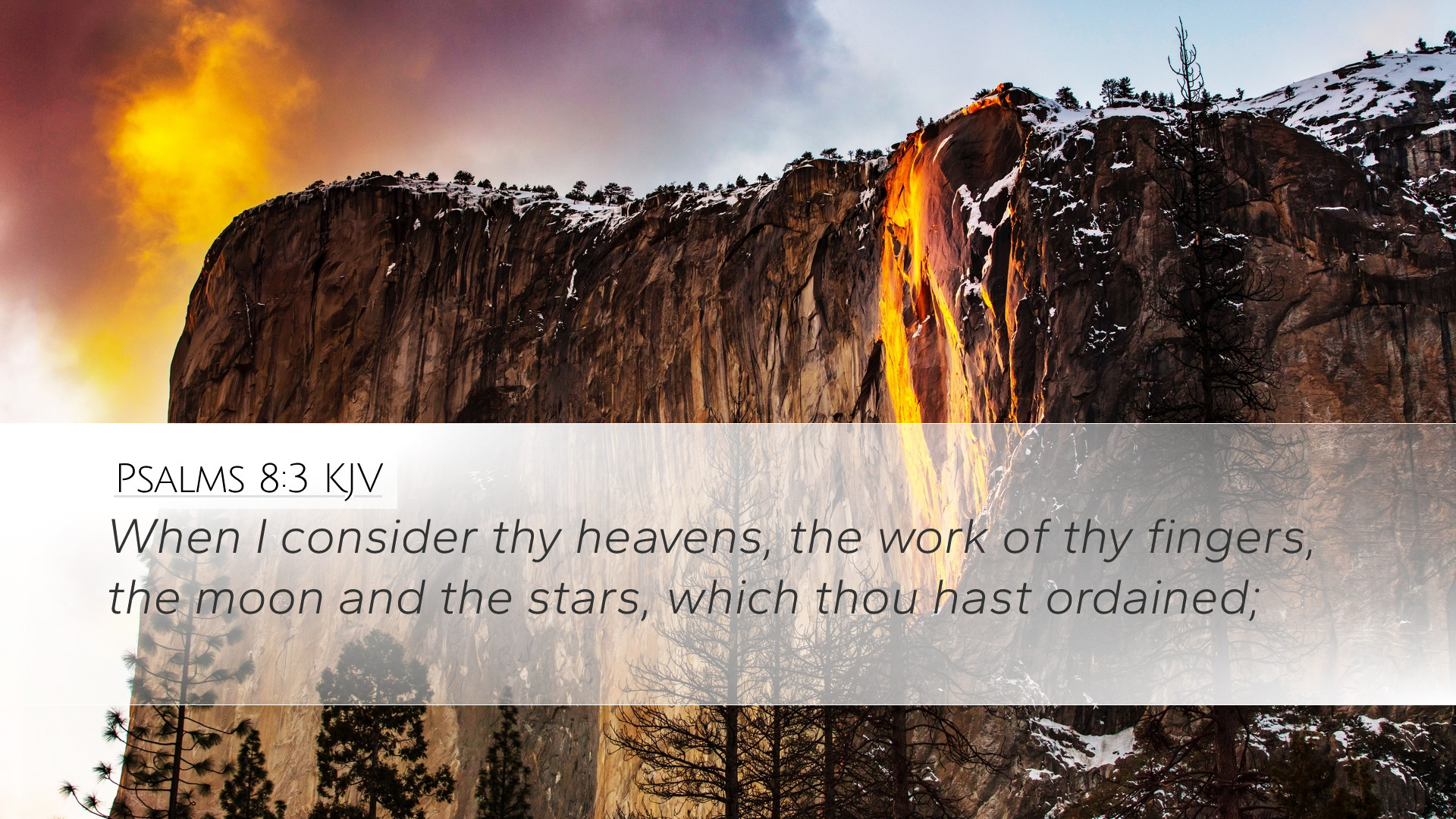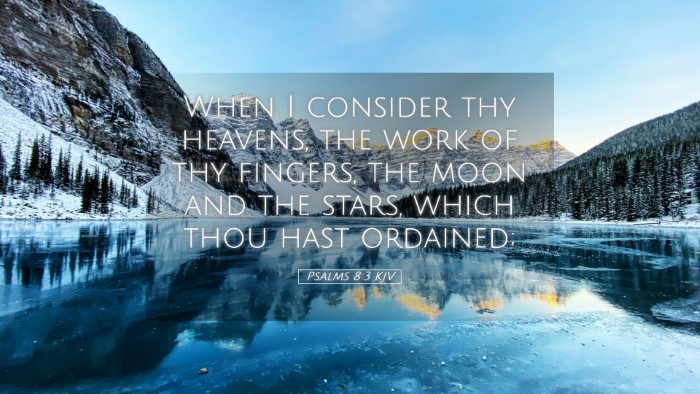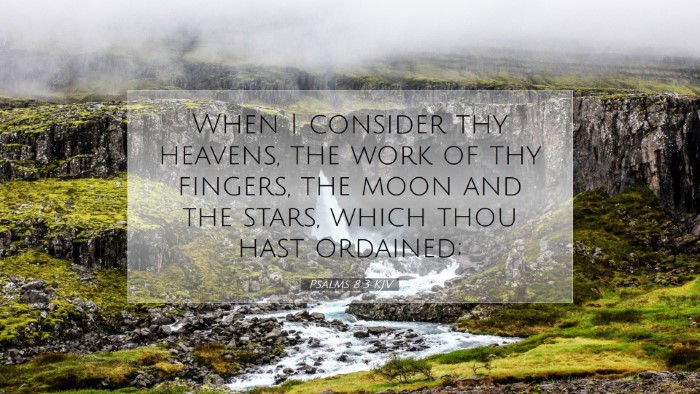Psalms 8:3 Commentary
Verse Text: "When I consider your heavens, the work of your fingers, the moon and the stars, which you have ordained."
Overview
Psalms 8:3 highlights the majesty of God as displayed in creation, invoking a sense of awe in the observer. This excerpt from the Psalms is a powerful reminder of God’s greatness and the smallness of humanity in contrast to the vast universe He has created.
Key Themes
- The Majesty of Creation: The psalmist marvels at the vastness of the heavens, suggesting that the universe is a testament to God's power and creativity.
- Humanity's Position: There is an implicit reflection on the position of humanity within creation, leading to questions of worth and purpose.
- Divine Intention: The verse raises awareness of the order and design in the universe, indicating an intentional creator behind it.
Commentary Insights
1. Matthew Henry's Perspective
Matthew Henry offers a profound exploration of this verse, emphasizing the personal nature of God’s creation. He notes that through the simple act of contemplating the heavens, one can appreciate the intricate work of God’s hands. Henry asserts that the psalmist is moved from contemplation to worship, reflecting on the stars and the moon as not merely celestial bodies but as manifestations of God’s glory and skill. He states, “The creation speaks the Creator's glory; his handiwork is evident in the order and beauty of the skies.”
2. Albert Barnes' Reflections
Albert Barnes brings attention to the intentionality behind the creation of the heavens. He suggests that the phrase "the work of your fingers" conveys the ease with which God created the universe, as if it was a simple task for Him. Barnes highlights that by observing creation, one can see God's greatness that evokes a response of reverence and humility. His commentary underscores the relationship between creation and the Creator, emphasizing that contemplating the heavens is a pathway to understanding God's omnipotence and wisdom.
3. Adam Clarke's Insights
Adam Clarke further develops the theme of divine craftsmanship in this verse. He comments on the order of the celestial bodies and how they reflect God's authority and majesty. Clarke emphasizes the emotional response that the psalmist experiences, moving from contemplation to a deep sense of insignificance in comparison to the grandeur of the night sky. He concludes that this reflection should lead believers to acknowledge their dependence on God while marveling at His magnificence. Clarke's thoughts invite the reader to use the experience of gazing at the stars to invoke gratitude for God’s creation.
Theological Implications
This psalm raises significant questions about humanity's identity and purpose in light of God's creative power. It invites a theological reflection on the doctrine of humanity, where even though we might feel small in the face of the universe, we are still of great worth to God. The mention of the ‘moon and stars’ conveys not only the beauty of creation but also the responsibility bestowed upon humanity to steward it.
1. The Imago Dei
Theologically, the discussion around Psalms 8 often leads to the doctrine of 'Imago Dei', the belief that humans are made in the image of God. This aspect further emphasizes that our capacity to contemplate such grandeur is a divine gift. This is pivotal for pastoral applications, reminding congregants of their dignity and worth in God’s eyes.
2. The Invitation to Worship
The intrinsic link between creation and worship is underscored in this verse. Pastors may encourage their flocks to use the beauty of the heavens as a means of worship, affirming that acknowledging God's handiwork deepens our relationship with Him. The psalmist’s wonder inspires a lifestyle of praise and reverence towards the Creator.
Conclusion
Psalms 8:3 serves as a profound reminder of the relationship between God, creation, and humanity. By considering the heavens, believers are invited into a deeper understanding of both God's majesty and their significance. This simple yet impactful verse encourages a response that encompasses awe, worship, and a renewed sense of identity in light of divine craftsmanship.


